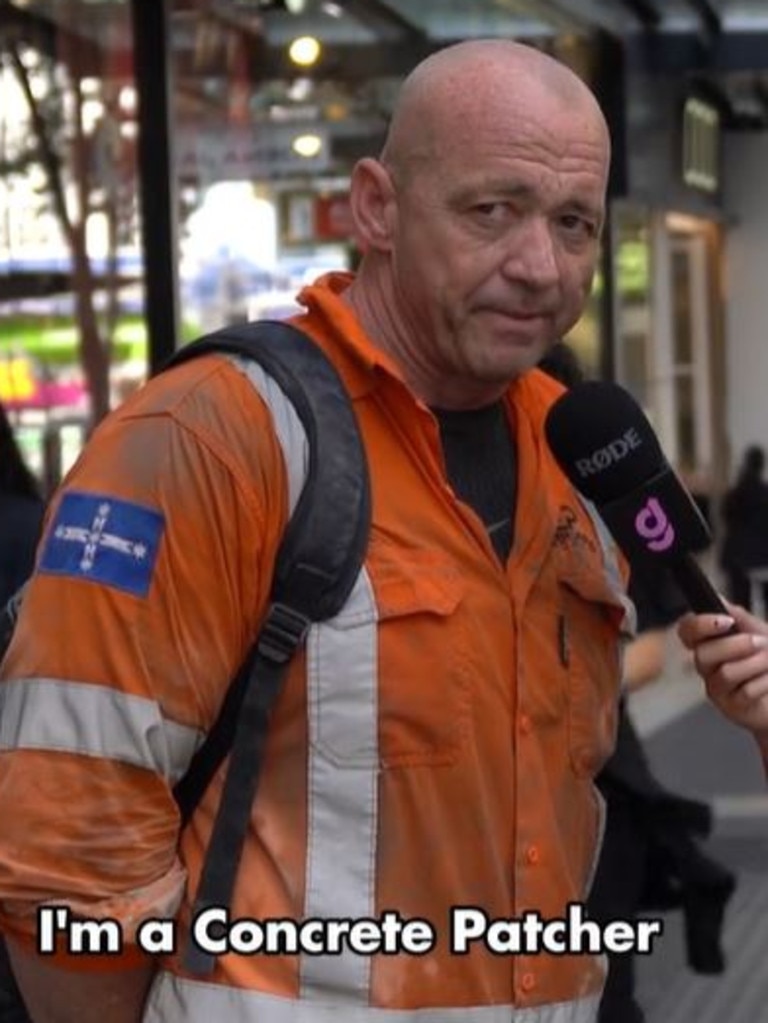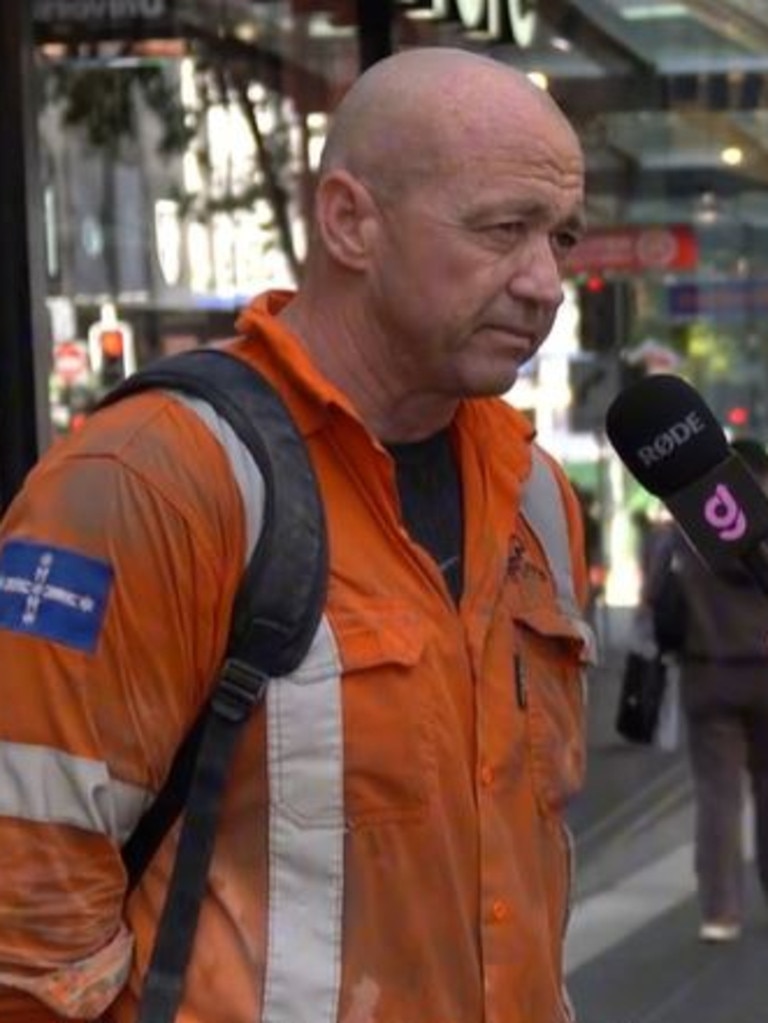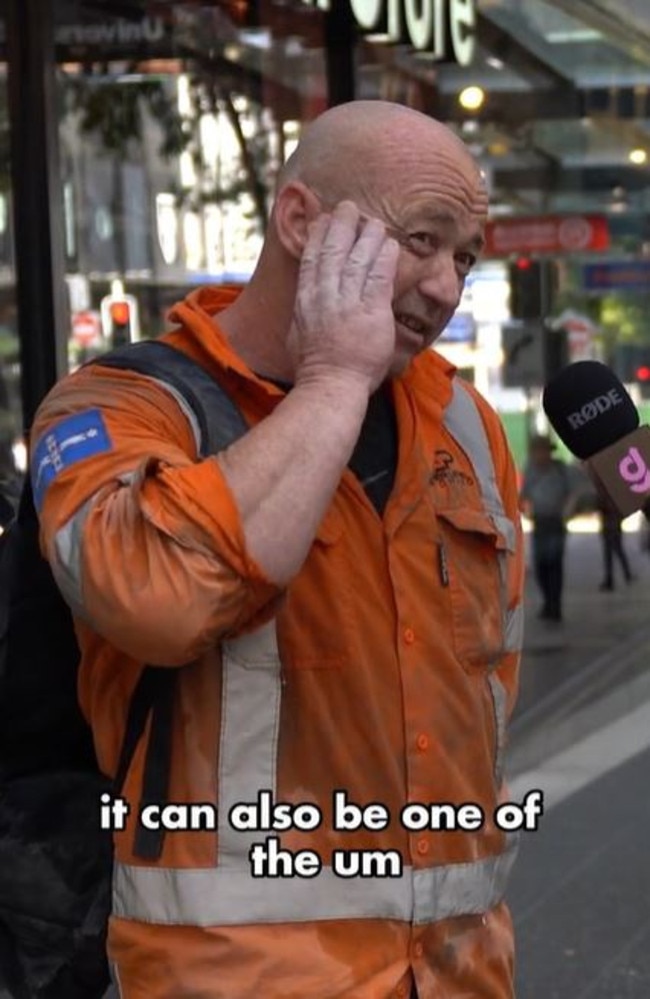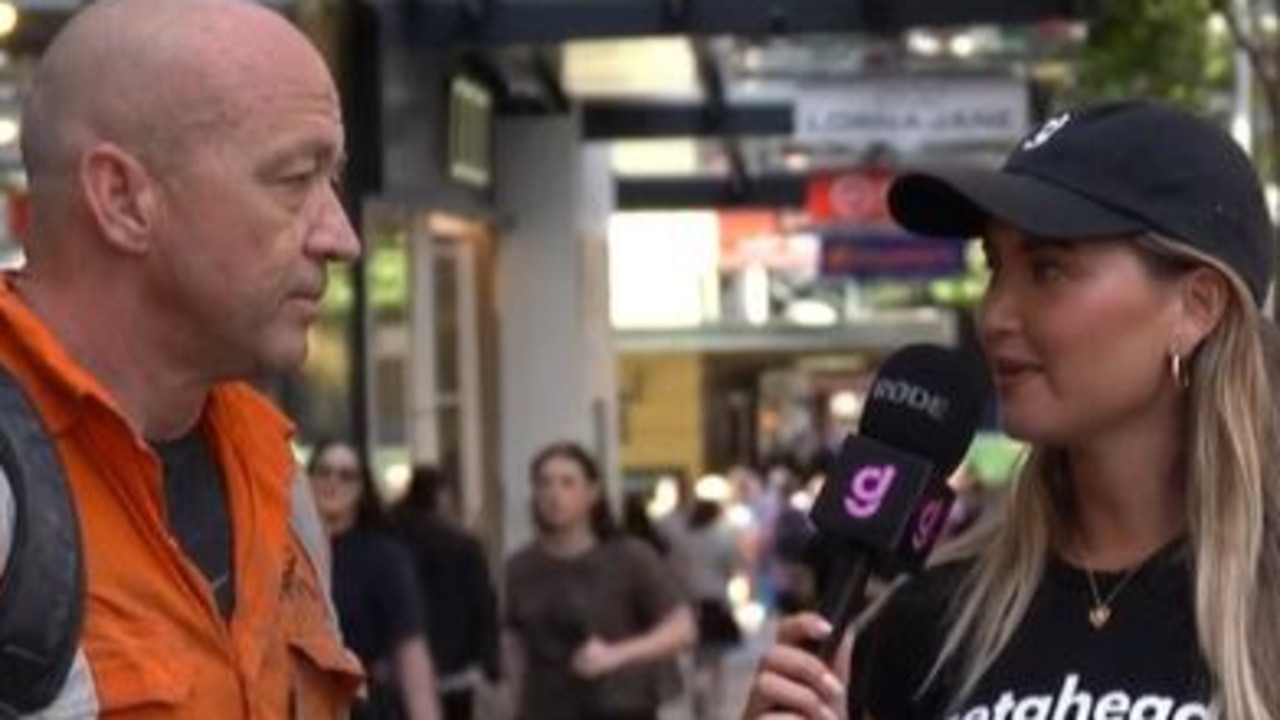‘Loaded’: Aussies lose it over tradie’s salary
An Aussie tradie has divided by revealing he feels like he is “working to survive” after revealing his wild weekly wage.
An Aussie tradie has divided the public after revealing he feels like he is “working to survive” — even though he earns more than $100,000 a year.
The concrete patcher from Brisbane revealed his salary to job finding app Getahead for its video series about how much Aussies earn.
“I actually do the repairs on the concrete work,” he explained in the video.
The tradie then revealed he earned between $2500 and $3000 per week after tax, which is well over $100,000 a year.
He said to earn that wage, he worked 10 and a half hours, five days a week. He added he sometimes worked Saturdays, although those shifts were typically shorter, between six and eight hours.
The tradie said while it could be physically demanding work, it could also be one of the “easiest jobs” in construction.


When asked if he’d like to do this forever, the tradie didn’t look too impressed with the idea of doing physical labour for the rest of his life.
“I’m working to survive at the moment,” he said.
“No. I wish I could win the lotto or something. This is all right for the time being.”
The tradie’s honest response divided people online.
Some said his weekly wage was more than enough to live on, let alone “survive”, and others argued it wasn’t that much anymore because of the cost-of-living crisis.
“Working to survive on $3000 per week?” one questioned.
Someone else argued that wage wouldn’t stretch very far.
“If you have a mortgage in a city like Brisbane, you’re not left with that much,” the person wrote.

Someone else remarked he was earning “a lot of money” and another joked “it sounds like he is paying something off”.
Another argued that the man was making more than “most” Australians.
“10 years ago making $100k meant you were doing okay. Nowadays, $100k is poverty,” one claimed.
Another online commentator said the money wasn’t “worth it” because the tradie worked too many hours.
Someone else claimed the tradie was “overpaid” and suggested no one would want to be nurses or doctors if they could earn more doing construction.

Money expert Rebeca Pike said feeling comfortable with your earnings was relative to your expenses.
“Someone earning $50,000 in a low-cost regional area might be financially comfortable and able to budget effectively. In contrast, someone in Sydney making $100,000 could be struggling to make ends meet due to high housing costs,” she explained.
Ms Pike said the housing crisis was a big reason why Australians earning decent wages were still stressed.
“Renting, once considered an affordable option, has become increasingly expensive, with rents rising significantly and showing no signs of slowing down,” she said.
“Owning a home is not much easier, with average mortgage payments increasing by $15,000 per year.”
Compounding the stress was slow wage growth, Ms Pike said. Housing and grocery costs have rised, but wages haven’t kept up.
“For much of the last few years wages have not grown at the same rate as inflation and that’s left a lot of people struggling with even day-to-day costs,” she said.

According to job search platform SEEK the annual salary for a tradie jobs in Australia in 2024 ranges from $75,000 to $95,000.
Tradie jobs in the mining, resources and energy sector are the only gigs with a median salary of more than $100,000.
In 2023, insurance company Trade Risk released a report on self-employed tradie earnings, finding that the average tradie made just above $90,000 a year.
More Coverage
The data, collected from over 3000 self-employed tradies, found that boiler makers, electricians, and plumbers earned the highest average, netting over $90,000 a year.
The report also showed a wage trend: tradies were moving into higher income brackets, and the most considerable growth across the board was for tradies moving up into six figures.
Tradies earning $100,000 to $150,000 grew from 9.6 per cent to 17.7 per cent, the $150,000 – $250,000 range doubled from 2.0 per cent to 4.2 per cent, and the $250,000 range was unchanged at 0.3 per cent.






